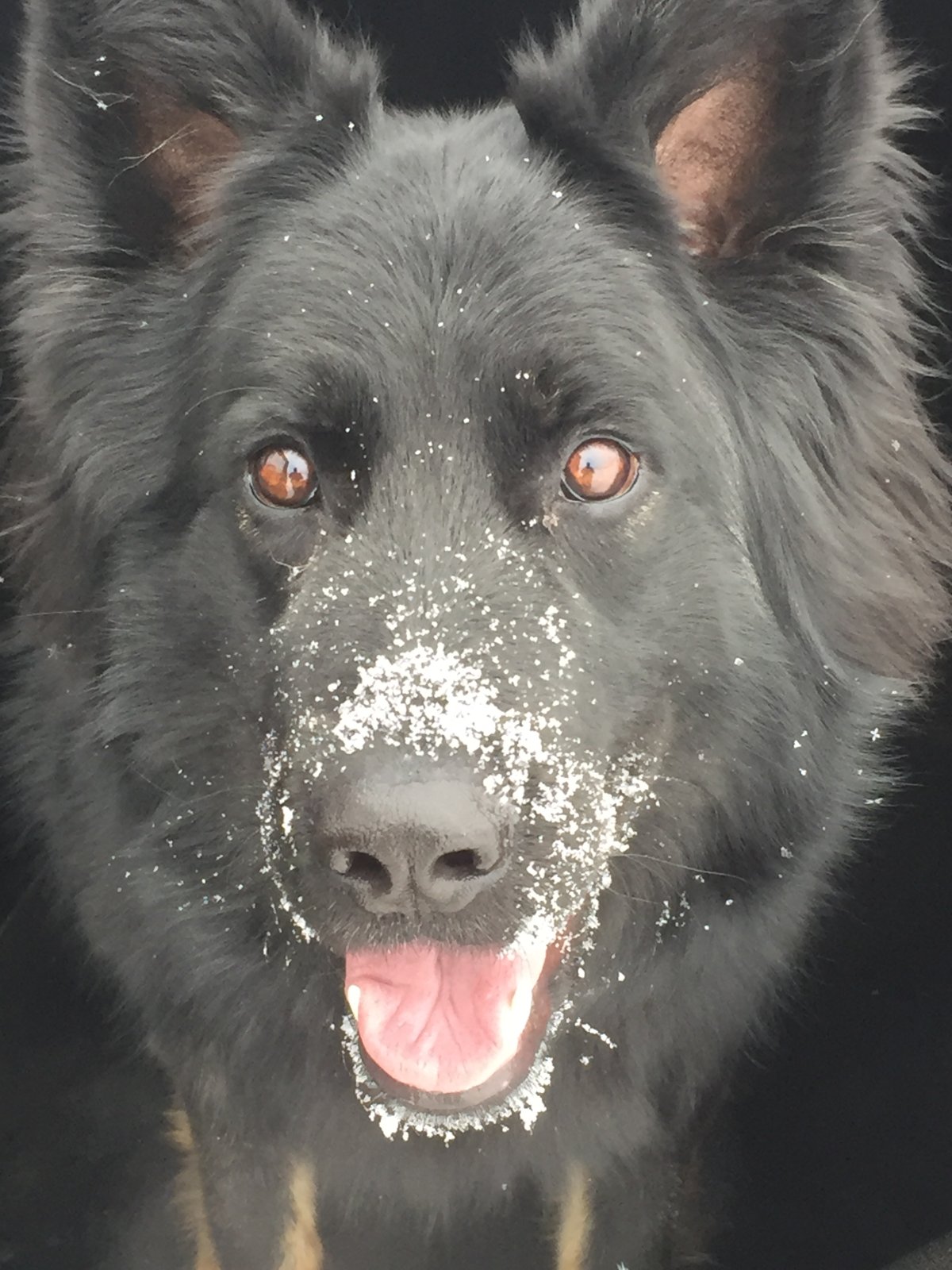A B.C. Mountie is bidding an emotional goodbye to his partner, who’s been put out of a job due to marijuana legalization.

Sgt. Gregg Calibaba is a drug dog handler for E Division Traffic Services. His partner Gabby, a four-year-old long-haired Belgian Shepherd is one of 14 RCMP drug traffic and interdiction dogs across the country whose skill set will become redundant on Oct. 17 when cannabis is no longer illegal.
“This is a working dog. For the best interests of the program I understand and appreciate why we have to move forward with replacing the dog,” Calibaba told Global News.
“Then there’s the human nature side of it. You get very attached, I’ve had this dog for three years, probably spend more time with this dog than I do with my own family.
“So to say that there might not be a tear or two shed, there certainly will be.”
The problem is that dogs like Gabby have been specially trained to smell marijuana and hashish. When they do, they signal their handler, which gives grounds for a search.
The RCMP has retrained its drug dogs in the past, adding fentanyl to their repertoire, but eliminating a scent is a different matter.
READ MORE: RCMP dogs helping in the fight against fentanyl
“It’s kind of like trying to get a human being to forget what the odour of popcorn smells like,” said Calibaba.
“Once you recognize that scent, it’s pretty hard to get rid of it.”
Gabby’s biggest bust happened about two years ago, according to Calibaba, when she sniffed out about 15 pounds of shatter, along with some cocaine and a large quantity of cash.
Traffic and interdiction dogs represent about 12 per cent of the total narcotics canine force. The RCMP’s general duty dogs can still be used in situations where cannabis is still illegal, or when grounds for search have already been established.
Gabby, who had been based out of Victoria, is one of five dogs in B.C. that will be out of work once cannabis legalization comes into effect.
Two of the dogs in the province are old enough that they’ll be allowed to retire and will likely be adopted by their handlers.
Gabby is too young for that, and along with two other B.C. dogs will be transferred to a U.S. police force that still sniffs for pot.
Gabby said goodbye to Calibaba’s wife and daughter on Thursday.
“There was a few tears over that one. So they had a little something special for her, a treat that she wouldn’t normally get, so she had a bit of cake and away she went,” he said.
RCMP in B.C. will replace the five dogs, including Gabby, and add two additional dogs to its ranks that will be trained in post-legalization drug detection.
The cost to train one of the dogs is about $5,000, and takes between 20 and 50 days at the RCMP’s Innisfail, Alta. training centre.
Calibaba has one more day with his partner, who will officially sign off the B.C. bud beat on Monday. He’ll then meet his new partner in training, a two-year-old Shepherd named Hope.
“There’s definitely a bond there, everyone’s bond is different, but most of us, if you ask any of the police dog handlers, they’ll tell you that the reason they got into this section is for the love of dogs.”
-With files from the Canadian Press










Comments